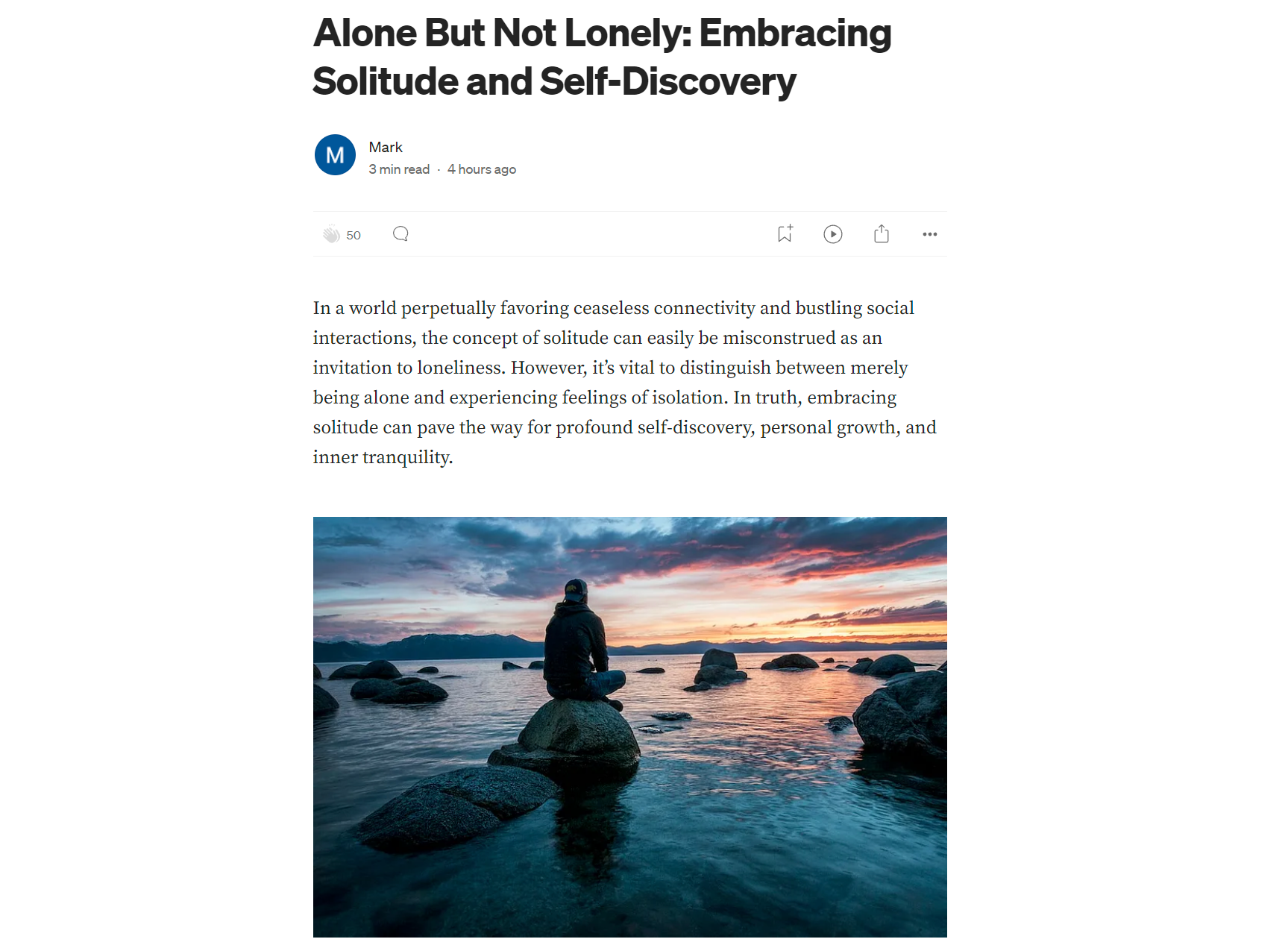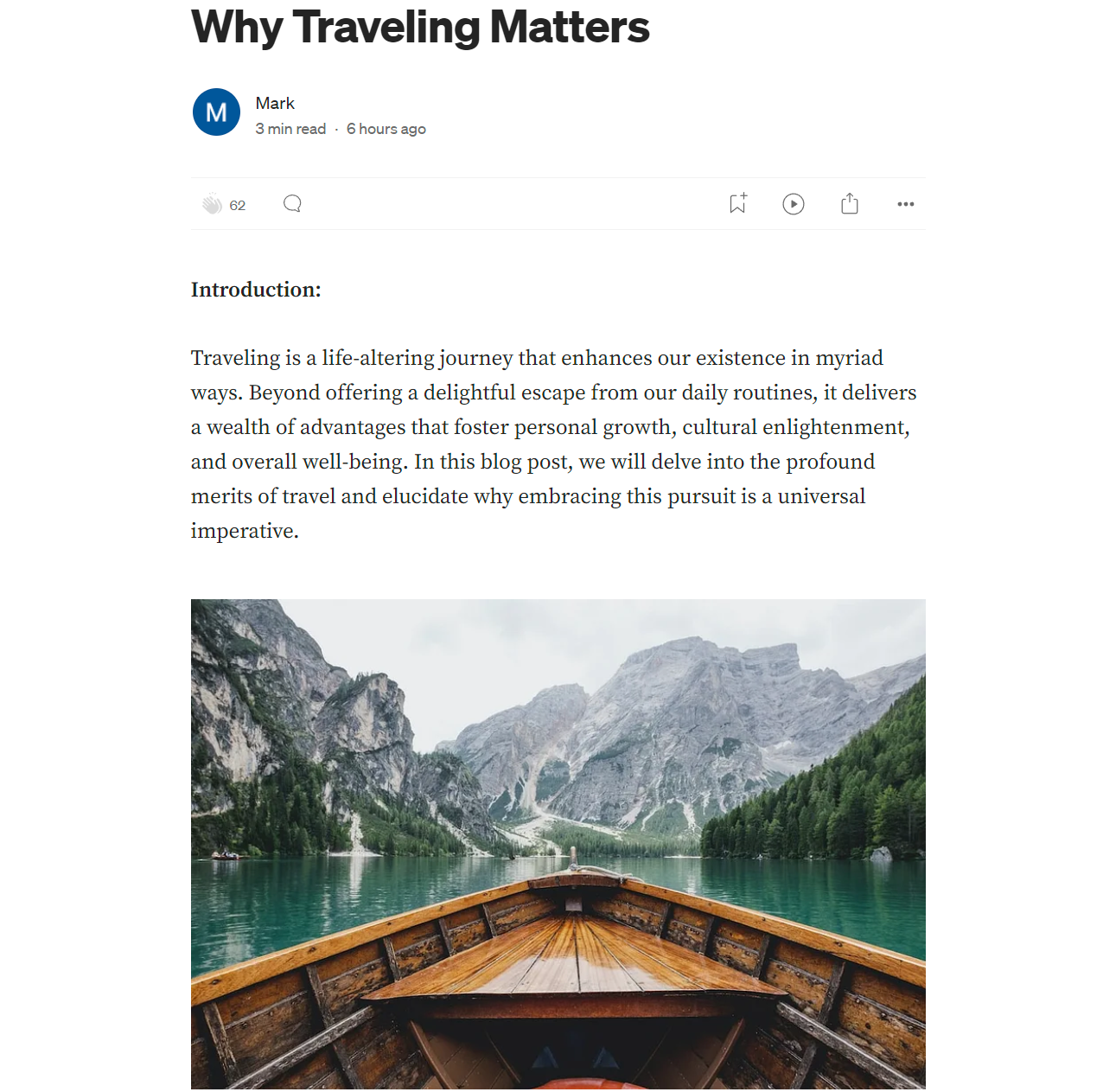Alone But Not Lonely: Embracing Solitude and Self-Discovery

Alone But Not Lonely: Embracing Solitude and Self-Discovery
--
In a world perpetually favoring ceaseless connectivity and bustling social interactions, the concept of solitude can easily be misconstrued as an invitation to loneliness. However, it’s vital to distinguish between merely being alone and experiencing feelings of isolation. In truth, embracing solitude can pave the way for profound self-discovery, personal growth, and inner tranquility.
(image credit — Unsplash)Mastering the Art of Solitude
Solitude vs. Loneliness: First and foremost, let’s dispel any confusion between these two states. Solitude is a conscious choice — a state where one finds solace and contentment in their own company. Loneliness, conversely, is an unwelcome sensation of detachment and disconnection, often stemming from a dearth of meaningful human connections.
Harnessing the Potency of Alone Time
1. Journey of Self-Reflection: Being alone provides an ideal setting for introspection. It’s a moment to pause, disconnect from external distractions, and establish a profound connection with your inner self. In solitude, you can delve into your thoughts, emotions, and aspirations, cultivating a deeper understanding of your authentic self.
2. Fostering Creativity and Innovation: Some of history’s most ingenious and groundbreaking ideas have sprung from moments of solitary contemplation. In the absence of external influences, your mind gains the liberty to meander, form unexpected connections, and conjure innovative concepts.
3. An Oasis of Stress Reduction: Solitude can serve as a sanctuary from the demands and pressures of everyday life. It offers an opportunity for rejuvenation and self-care, effectively diminishing anxiety and promoting mental well-being.
Cultivating a Healthy Relationship with Solitude
1. Mindfulness and Meditation: Practices like mindfulness and meditation empower you to wholly embrace and relish your solitary moments. These techniques foster heightened self-awareness and imbue a sense of inner calm.
2. Nurturing Hobbies and Passions: Utilize your solitary interludes to immerse yourself in hobbies or pursuits that ignite your passion. Be it reading, painting, playing a musical instrument, or simply taking a leisurely walk, these activities can be profoundly fulfilling.
3. Establishing Boundaries: Striking a balance is paramount when it comes to solitude. While it can be enriching, excessive isolation may inadvertently lead to loneliness. Maintain equilibrium by interspersing your alone time with meaningful social connections.
Wholeheartedly Embracing Solitude Without Loneliness
4. Enhancing Connections with Others: Paradoxically, as you become more at ease with solitude, you often discover that your social interactions improve. You develop increased self-assurance, enabling you to engage more meaningfully with others.
5. Journey of Self-Discovery: Solitude unveils the opportunity to peel away the layers of external influences and societal expectations, unveiling your true, authentic self. This odyssey of self-discovery can be utterly transformative and empowering.
6. Attaining Inner Peace: Ultimately, the ability to be alone without feeling lonely can lead to profound inner serenity. You cease to depend on external factors for happiness and instead uncover a wellspring of contentment within yourself.
In a world teeming with incessant noise and perpetual activity, embracing solitude emerges as a valuable skill. It is a voyage that champions self-acceptance nurtures personal growth, and forges a deeper connection with the world around you. So, the next time you find yourself in solitary contemplation, remember you are not lonely but empowered, journeying toward self-discovery and a more enriching life.



